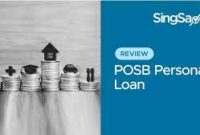
– Importance Of Reviewing Personal Loan Terms And Conditions
Reviewing personal loan terms and conditions is an important aspect of responsible borrowing. These terms and conditions are a legally binding agreement between the borrower and the lender, outlining the specific details of the loan, such as the interest rate, repayment schedule, and any additional fees or charges. By carefully reviewing and understanding these terms and conditions, borrowers can ensure that they know exactly what they are agreeing to and can avoid any unpleasant surprises or misunderstandings down the road.
Also Read
This is particularly important when it comes to personal loans, as they often involve large sums of money and can have a significant impact on an individual’s financial circumstances. Therefore, taking the time to carefully review and understand the terms and conditions of a personal loan can ultimately help borrowers make informed decisions and achieve their financial goals.
Purpose Of Personal Loans
A personal loan is a type of loan that individuals can obtain from a lender for a variety of purposes. The purpose of a personal loan can range from consolidating debt to covering unexpected expenses or making a large purchase. Personal loans can also be used for home improvements or to finance a small business. The flexibility of these loans allows borrowers to address immediate financial needs while also providing a source of funds for longer-term goals. It is important for individuals to find a lender that aligns with their loan purpose and financial situation in order to obtain the best terms and rates for their personal loan.
Overall, personal loans serve as a useful financial tool for addressing a wide range of financial needs.
- Debt Consolidation, Home Improvement, Medical Expenses, Etc.
- Debt consolidation, home improvement, medical expenses, and other major expenses can cause a significant financial burden on individuals and families. Fortunately, there are various options available to help ease the strain of these expenses. Debt consolidation loans allow borrowers to combine multiple debts into a single loan with a lower interest rate and a more manageable repayment schedule. Home improvement loans provide funds for necessary repairs and upgrades to a property. Medical expense loans can help cover costly medical bills and procedures.
Additionally, there are resources available, such as financial counseling and assistance programs, to help individuals navigate these expenses and obtain the necessary funding. Proper financial planning and management can also help mitigate the impact of these expenses and prevent future financial strain.
– Advantages And Disadvantages Of Personal Loans
Personal loans can offer many advantages to those seeking financial help. First and foremost, they provide a lump sum of cash that can be used for any purpose, unlike a mortgage or auto loan. This can be helpful for consolidating high-interest debt, making home improvements, or covering unexpected expenses. Additionally, personal loans often have lower interest rates than credit cards, making them a more affordable option for borrowing money. However, there are also some potential drawbacks to personal loans.
For one, they often require a good credit score to be approved, meaning those with poor credit may not qualify. Additionally, some personal loans come with high fees and prepayment penalties, so it’s important to read the terms carefully before agreeing to anything. Overall, personal loans can be a useful financial tool, but it’s important to weigh the pros and cons before applying.
Types Of Personal Loans
Personal loans are a popular form of borrowing that can be used for a variety of purposes. There are several different types of personal loans available to consumers, each with its own set of terms and conditions. One common type of personal loan is an unsecured loan, which does not require any collateral. This type of loan may have higher interest rates, as there is no security for the lender. Another type of personal loan is a secured loan, which requires collateral such as a car or house. These loans may offer lower interest rates, but come with the risk of losing the collateral if the loan is not repaid.
Other types of personal loans include lines of credit and payday loans, each with their own advantages and disadvantages. Before taking out any type of personal loan, it is important to thoroughly research and compare options to ensure the loan fits your needs and financial situation.
Cek juga: Cara Mudah Cek Bansos.kemensos.go.id
– Discuss Unsecured And Secured Personal Loans
Personal loans can be either secured or unsecured, depending on whether collateral is required to obtain the loan. A secured personal loan requires the borrower to put up collateral, such as a car or a home, which the lender can seize if the borrower fails to repay the loan. Secured loans typically have lower interest rates because the lender has greater security in the form of collateral. In contrast, unsecured personal loans do not require collateral but instead rely on the borrower’s creditworthiness to determine eligibility and interest rates.
Unsecured loans often have higher interest rates to compensate for the added risk to the lender. When deciding between secured and unsecured personal loans, borrowers should weigh the benefits of lower interest rates versus the risk of losing their collateral if they’re unable to repay the loan.
– Outline The Differences In Interest Rates, Repayment Terms, And Requirements For Each Type Of Loan
Loans come in different types, each with varying interest rates, repayment terms, and requirements. Understanding these differences can help you choose the loan that best fits your needs. For instance, mortgages typically have longer repayment terms of 30 or 15 years, while personal loans may be repaid in just a few years. Interest rates also vary. Secured loans, like car loans and mortgages, tend to have lower interest rates because they are backed by collateral while unsecured loans, like credit cards and personal loans, may have higher rates due to the added risk for lenders.
Lastly, loans have different requirements. Some loans may require you to have a good credit score or a certain level of income, while others may not have strict eligibility criteria. Thus, it is important to weigh these factors to determine the loan that is most suitable for your financial situation and needs.
Loan Terms And Conditions
A loan agreement is a legally binding contract between a lender and borrower that outlines the terms and conditions for the loan. These terms and conditions can include the amount of the loan, the interest rate, the repayment period, and any fees or penalties associated with non-payment or late payment. The loan terms and conditions can also include provisions for collateral and any other requirements the lender may have. It is important for borrowers to carefully review and understand the loan terms and conditions before agreeing to the loan, as they are legally obligated to adhere to the terms of the contract.
Failure to do so can result in negative consequences such as defaulting on the loan or damaging their credit score.
– Review Common Terms And Conditions For Personal Loans Such As Interest Rate, APR, Fees, And Repayment Schedule
Personal loans can be a useful financial tool for individuals who need to borrow money for various reasons, such as consolidating debt, paying for home repairs, or covering unexpected expenses. Before applying for a personal loan, it is important to understand the common terms and conditions associated with these loans. The interest rate is the percentage the lender will charge for the use of the funds borrowed. The annual percentage rate (APR) takes into account not only the interest rate but also any fees associated with the loan.
These fees may include origination fees, prepayment penalties, and late payment fees. The repayment schedule outlines when payments are due and how long the individual has to pay back the loan. It is important to review the terms and conditions carefully before accepting a personal loan to ensure that the individual understands the financial responsibilities associated with it.
– Discuss The Potential Impact Of These Conditions On The Borrowers Ability To Repay The Loan
The potential impact of certain conditions on the borrower’s ability to repay a loan can be significant. For instance, prolonged unemployment or slow economic growth can lead to a decrease in income, making it harder to make regular loan payments. Discrimination, such as racial discrimination, can also impact a borrower’s ability to access certain loan products and opportunities. Additionally, health conditions can cause unexpected expenses or a decrease in income due to illness or disability, making it difficult to repay a loan.
Understanding these potential impacts is crucial for lenders in assessing the borrower’s ability to repay the loan and for borrowers in considering their ability to take on additional debt. Cek juga: Cara Menghasilkan Uang dari TikTok: Mudah dan Gampang untuk Pemula
Borrower Eligibility
Borrower eligibility is a critical factor that lenders must consider when reviewing personal loan applications. Lenders will typically assess the creditworthiness of the borrower, looking at factors such as credit history, income, and debt-to-income ratio. Additionally, lenders may also review the borrower’s employment history, education, and other personal information. Once the lender has reviewed all of this information, they will determine whether the borrower meets the eligibility criteria for the loan.
If the borrower is deemed eligible, the lender may offer them a loan with specific terms and conditions, such as interest rates and repayment schedules. Overall, the borrower’s eligibility for a personal loan can have a significant impact on their ability to obtain financing and achieve their financial goals.
– Outline Common Eligibility Requirements For Personal Loans Such As Credit Score, Income, And Employment History
Personal loans are a popular option for individuals who need to borrow money for a variety of purposes, such as paying for unexpected expenses, consolidating debt, or financing a major purchase. To be eligible for a personal loan, there are several common requirements that lenders typically consider. These include the borrower’s credit score, income, and employment history. A good credit score is typically necessary to qualify for a personal loan, as it demonstrates a track record of responsible borrowing and makes the borrower less of a risk for defaulting on their payments.
Lenders also consider the borrower’s income to ensure they have enough funds to make their payments. Finally, lenders may look at the borrower’s employment history to determine their stability and ability to repay the loan over time. Meeting these eligibility requirements can increase the chances of being approved for a personal loan and receiving favorable terms and interest rates.
– Discuss How These Requirements Can Impact Loan Approval And Terms
Loan approval and terms are a crucial factor for individuals seeking financial assistance, whether it be for a mortgage, car loan, or personal loan. There are several requirements that can impact loan approval and terms, including credit score, income, and debt-to-income ratio. A good credit score can increase the chances of loan approval and can lead to more favorable terms, such as a lower interest rate. On the other hand, a poor credit score may result in higher interest rates or even loan denial.
Income is also an important factor, as lenders want to ensure that borrowers have the means to repay the loan. A high debt-to-income ratio may indicate that the borrower may struggle to make payments, leading to higher interest rates or loan denial. It is important to note that lenders may have different requirements and criteria for loan approval and terms, and it is crucial for individuals to thoroughly research and compare options before making a decision.
Choosing A Lender
Choosing a lender is a crucial step in the borrowing process, as different lenders may offer varying loan terms and interest rates. It is important to research and compare lenders to find one that can meet your specific borrowing needs. This process involves assessing factors such as the lender’s reputation, loan application requirements, loan products, fees and charges, and customer service. Additionally, it is important to verify your identity and income with the lender before moving forward with the application process.
By choosing a lender that is a good fit for you, you can increase your chances of securing a loan that meets your financial goals and needs.
– Discuss Factors To Consider When Choosing A Lender For A Personal Loan Artikel terkait: Gemini AI: Mengubah Cara Kita Melihat Foto
When choosing a lender for a personal loan, there are several factors to consider. The first is the interest rate and the total cost of borrowing money. It’s important to compare rates from different lenders and choose one that offers the best deal. Another important factor to consider is the lender’s reputation and track record. You want to choose a lender that is trustworthy and has a history of providing good customer service. The terms and conditions of the loan are also important to consider, such as the length of the loan and any fees or penalties for early repayment.
Additionally, it’s worth considering any additional benefits offered by the lender, such as flexible repayment options or the ability to pre-qualify for a loan. Ultimately, the lender you choose will depend on your individual needs and financial situation, so it’s important to do your research and carefully weigh your options before making a decision.
– Compare And Contrast Loan Offers From Multiple Lenders
When it comes to getting a loan, there are typically numerous options available from a range of lenders. It’s important to take the time to compare and contrast loan offers from multiple lenders before making a decision. By doing so, you can ensure that you’re getting the best deal possible, with terms and conditions that work for you and your financial situation. This can include factors such as interest rates, repayment periods, and any additional fees or charges that may be associated with the loan.
Whether you’re looking for a personal loan, a mortgage, or any other type of loan, taking the time to shop around and compare offers can help you make an informed decision and secure the best possible financial outcome for your needs.
Conclusion
In conclusion, a personal loan review is a crucial element for maintaining a healthy portfolio risk. Through a loan review process, each individual loan can be evaluated to understand the lending process and procedures , from intake to closing. In addition to assessing loan characteristics, personal and neighborhood characteristics are also taken into consideration. By conducting a thorough review of personal loans, lenders can identify potential risks, minimize potential losses, and make informed decisions when it comes to extending credit to individuals.
Therefore, it is important for financial institutions to prioritize the implementation of a comprehensive personal loan review process.
– Recap Important Points From The Essay
When writing an essay, it is important to summarize the main points in a concise and effective way. To recap important points from the essay, the writer should first identify the key ideas and supporting details presented in each paragraph. Once these points have been identified, the writer can then craft a final summary paragraph that highlights the most critical information and ensures that the reader understands the main message of the essay. This summary paragraph should be a condensed version of the essay, highlighting the most important points and leaving out any extraneous or irrelevant information.
By doing so, the writer can leave a lasting impression on the reader and ensure that their message has been received loud and clear.
A personal loan is a financial product that enables individuals to borrow money for a wide range of purposes, such as paying for medical expenses, home renovations, or consolidating high-interest debts. However, before taking out a personal loan, it is essential to review the terms and conditions of the loan carefully. This includes assessing the interest rate, fees, and repayment options, as well as the lender’s reputation and track record. It is also advisable to check your credit score and credit report to ensure that you are eligible for the loan and to negotiate better loan terms.
By conducting a thorough personal loan review, you can make an informed decision and avoid potential financial pitfalls.












